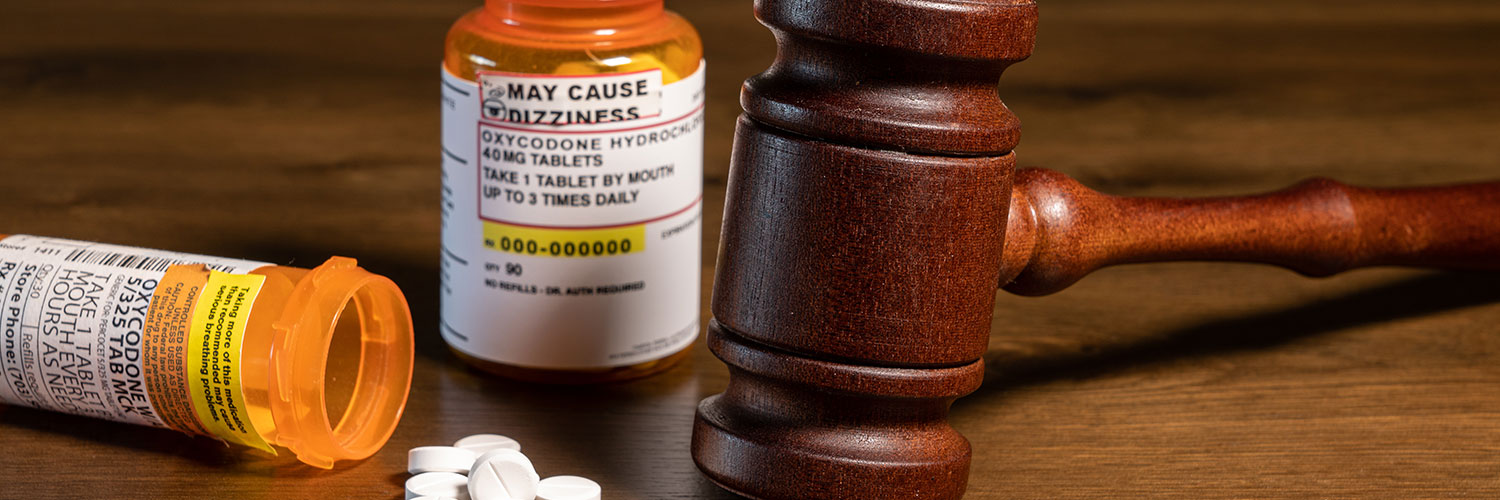Weekly Mass Torts Bulletin 2022-November-28
FDA Reports 260 Deaths Linked To Recalled CPAP Machines

According to federal regulators, at least 260 deaths have been linked to recalled Philips CPAP sleep apnea machines, BiPAP machines, and mechanical ventilators, which were taken off the market last year amid concerns that toxic particles from the sound abatement foam could enter the airways and users' lungs.
In July 2021, Philips issued a massive sleep apnea machine recall, affecting all DreamStation, CPAP, BiPAP, and ventilators that used a polyester-based polyurethane (PE-PUR) foam to reduce noise and vibrations while the machine was in use. The manufacturer acknowledged at the time that the foam is prone to break down over time, releasing harmful chemicals and gases.
On November 22, the US Food and Drug Administration (FDA) issued an update with new data on the number of medical device reports (MDRs) submitted by users over the previous year and a half.
Since the recall, Philips, doctors, and patients have submitted over 90,000 reports, including 260 reports of death linked to the breakdown of PE-PUR foam. Other problems reported by users include cancer, pneumonia, asthma, infections, headaches, coughs, dyspnea, dizziness, nodules, chest pain, and other respiratory problems.
Due to the serious side effects of the Philips CPAP foam, the FDA advised all owners to stop using the machines immediately following the recall unless the devices were required for life-sustaining therapy. However, CPAP replacement machines were scarce, and repairs were slow.
Philips announced a CPAP machine repair and replacement programme in September 2021, but there have been some concerns raised about the safety of the alternative foam material used by the manufacturer, which may also release harmful chemicals directly into the machine's air pathways.
The FDA has criticized Philips' handling of the recall, claiming that the company did not do enough to warn consumers about the health risks of using recalled CPAP machines.
According to a docket report (PDF) released on November 15, 2022 by the United States Judicial Panel on Multidistrict Litigation (JPML), there are currently at least 346 Philips recall lawsuits filed in the federal court system. Thousands of additional claims involving cancer and lung damage among former users of the breathing machines, on the other hand, have been registered on a tolling agreement.
Given the common factual and legal issues raised in the Philips Respironics CPAP lawsuits filed throughout the federal court system, the federal claims have been consolidated before the United States District Judge for the Western District of Pennsylvania, who is presiding over coordinated discovery and pretrial proceedings.
Throughout 2022 and 2023, the parties are expected to establish a "bellwether" process in which a small group of representative claims involving various types of breathing machines will be prepared for early trial dates to help gauge how juries are likely to respond to certain evidence and testimony that will be repeated throughout the litigation. The judge, however, has already appointed a Philips CPAP recall settlement master to work with the parties and determine whether an early agreement to resolve claims can be reached.
CDC’s New Opioid Guidelines Rejected By Florida

The Florida Department of Health has rejected the new CDC guidelines for opioid prescribing, citing the ongoing opioid crisis and the recent fentanyl explosion.
The CDC updated its Clinical Practice Guideline for Prescribing Opioids for pain in early November, easing its previous strict guidance by pointing out that opioids can be essential medications for pain management while also noting that they carry significant potential risks.
Opioid use disorder is a chronic life-threatening disease that people contract through exposure to opioids, whether illicit or prescribed by a physician, according to Florida's Deputy Secretary for Health, and now is not the time for the CDC to relax its opioid recommendations.
He even stated that more Americans between the ages of 18 and 45 died from an overdose in 2020 than from car accidents and suicide combined, and he questions why the new report contradicts sound advice and downplays the clear and proven dangers of opioids.
For nearly two decades, the United States has been dealing with an opioid crisis. More than 90,000 Americans died from a drug overdose in 2020, with opioids accounting for 75% of the deaths. In 2020, overdose killed more Americans aged 18 to 45 than car accidents and suicide combined.
Opioid use disorder is a chronic, life-threatening disease caused by opioid exposure, whether illicit or prescribed by a physician. In recognition of this, the Centers for Disease Control and Prevention warned in 2016 about the dangers of overprescribing and the need to limit opioid prescriptions for acute pain to three days. It also advised doctors to avoid exceeding 90 milligrammes of morphine per day.
Nonetheless, the CDC updated its Clinical Practice Guideline for Prescribing Opioids for Pain in early November. The updated recommendations abandon the three-day limit on opioid treatment and remove the dosage recommendation. According to the accompanying 2022 report, opioids can be essential medications for pain management; however, they carry significant potential risks.
Opioids were described as having serious risks in the 2016 report, including overdose and opioid use disorder. It doesn't have any potential. While opioids may be required for severe conditions and end-of-life care, the general public should not be told that they are required for pain management.
Many recent generations of healthcare professionals will identify with episodes of the Hulu series "Dopesick," which tells the story of the dark years before the dangers of opioids were recognised. Opioid overprescribing has resulted in addiction and dependence on illicit drugs. According to one study, 80% of heroin users began with prescribed opioids.
In Florida, significant progress is being made in understanding this disease and the need for non-opioid pain-management options. The state has taken aggressive steps to combat the deadly opioid crisis with evidence-based treatment, while also holding those who knowingly contribute to the spread of this disease accountable.
Nonetheless, there has been a surge in the use of lethal fentanyl in our state, both as a replacement for older illicit opioids and as an additive in a variety of other street drugs. In Florida, fentanyl-related overdose deaths have increased by 790% since 2015.
NY Secures $116M From Walmart’s $3.1B Opioid Settlement

New York will get $116 million from Walmart's $3.1 billion nationwide opioid settlement to settle allegations that it played a role in the nation's opioid crisis.
The nationwide settlement followed years of litigation by a coalition of state attorneys general and 15 other states. The agreement is not final because 43 states must agree to it by the end of the year. The attorney general stated that pharmacies played an undeniable role in the spread of opioids across the country.
Under the settlement, Walmart will also be subject to certain oversight measures aimed at combating fraudulent opioid prescriptions and other harmful practises.
The agreement, in which Walmart denies any wrongdoing, is the latest in a string of high-profile settlements involving states that had sued distributors and manufacturers in connection with the opioid crisis, which has devastated communities across the country.
Teva Pharmaceuticals Ltd., a drug manufacturer embroiled in a sprawling opioid litigation, agreed to pay the state up to $523 million in a similar settlement earlier this month, according to the attorney general. In 2021, a jury in Suffolk County found Teva liable after a months-long trial over its alleged role in fueling the opioid crisis. In response to opioid litigation, several other large corporations have also paid the settlements.
According to the Centers for Disease Control and Prevention, opioids will account for roughly three-quarters of all overdose deaths in 2020. According to the CDC, over 564,000 people died from opioid overdose between 1999 and 2020, including prescription and illicit opioids.
Too many families have lost loved ones to the opioid epidemic, and too many people have lost years of their lives to addiction, according to North Carolina's attorney general.
The spokesperson for the company said that the company strongly disputes the allegations in these matters. He further added that Walmart believes the settlement framework is in the best interests of all parties and will provide significant aid to communities across the country in the fight against the opioid crisis, with aid reaching state and local governments faster than any other nationwide opioid settlement to date, assuming all settlement requirements are met.

